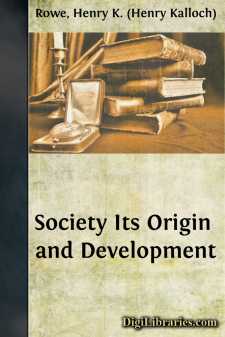Categories
- Antiques & Collectibles 13
- Architecture 36
- Art 48
- Bibles 22
- Biography & Autobiography 813
- Body, Mind & Spirit 142
- Business & Economics 28
- Children's Books 16
- Children's Fiction 13
- Computers 4
- Cooking 94
- Crafts & Hobbies 4
- Drama 346
- Education 46
- Family & Relationships 57
- Fiction 11829
- Games 19
- Gardening 17
- Health & Fitness 34
- History 1377
- House & Home 1
- Humor 147
- Juvenile Fiction 1873
- Juvenile Nonfiction 202
- Language Arts & Disciplines 88
- Law 16
- Literary Collections 686
- Literary Criticism 179
- Mathematics 13
- Medical 41
- Music 40
- Nature 179
- Non-Classifiable 1768
- Performing Arts 7
- Periodicals 1453
- Philosophy 64
- Photography 2
- Poetry 896
- Political Science 203
- Psychology 42
- Reference 154
- Religion 513
- Science 126
- Self-Help 84
- Social Science 81
- Sports & Recreation 34
- Study Aids 3
- Technology & Engineering 59
- Transportation 23
- Travel 463
- True Crime 29
Psychology A Study Of Mental Life
Description:
Excerpt
CHAPTER I
WHAT PSYCHOLOGY IS AND DOES
THE SUBJECT-MATTER OF THE SCIENCE, ITS PROBLEMS AND ITS METHODS
Modern psychology is an attempt to bring the methods of scientific investigation, which have proved immensely fruitful in other fields, to bear upon mental life and its problems. The human individual, the main object of study, is so complex an object, that for a long time it seemed doubtful whether there ever could be real science here; but a beginning was made in the nineteenth century, following the lead of biology and physiology, and the work of the investigator has been so successful that to-day there is quite a respectable body of knowledge to assemble under the title of scientific psychology.
Psychology, then, is a science. It is the science of--what shall we say? "The science of the soul"--that is what the name means by derivation and ancient usage. "The science of the mind" has a more modern sound. "The science of consciousness" is more modern still. "The science of behavior" is the most recent attempt at a concise formula.
None of these formulas is wholly satisfactory. Psychology does not like to call itself the science of the soul, for that has a theological tang and suggests problems that have so far not seemed accessible to scientific investigation. Psychology does not like very well to call itself the science {2} of the mind, as the mind seems to imply some thing or machine, and there is no such thing to be observed (unless it be the brain and body generally), and, anyway, psychology is distinctly a study of actions rather than of things. Psychology does not like to limit itself to the study of consciousness, but finds it necessary to study also unconscious actions. As to "behavior", it would be a very suitable term, if only it had not become so closely identified with the "behavioristic movement" in psychology, which urges that consciousness should be entirely left out of psychology, or at least disregarded. "Behavior psychology", as the term would be understood to-day, means a part of the subject and not the whole.
[Footnote: A series of waggish critics has evolved the following: "First psychology lost its soul, then it lost its mind, then it lost consciousness; it still has behavior, of a kind."]
The best way of getting a true picture of psychology, and of reaching an adequate definition of its subject-matter, would be to inspect the actual work of psychologists, so as to see what kind of knowledge they are seeking. Such a survey would reveal quite a variety of problems under process of investigation, some of them practical problems, others not directly practical.
Differential psychology.
One line of question that always interests the beginner in psychology is as to how people differ--how different people act under the same circumstances--and why; and if we watch the professional psychologist, we often find him working at just this problem. He tests a great number of individuals to see how they differ, and tries to discover on what factors their differences depend, how far on heredity, how far on environment....







